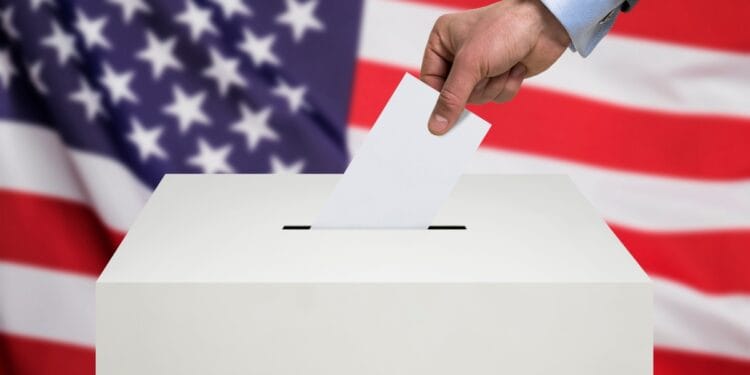No products in the cart.
Trump’s 2024 Election Controversial Remarks on Jewish Voters
This post contains paid and/or affiliate links. I make a small commission at no extra cost to you. Please see our Privacy Policy.
After former President Donald Trump made comments questioning Jewish voters‘ loyalty, we’ve seen a rise in antisemitic rhetoric and incidents in the U.S. This article looks at the historical context, broader implications, and why we must tackle hate speech and divisiveness in American political discourse.
Trump’s statements, saying Jewish Americans who support the Democratic party are “disloyal” to Israel and the Jewish people, caused outrage. Many have called these comments antisemitic. This rhetoric has led to more hate speech, harassment, and physical attacks on Jews.
Understanding the historical context of antisemitism in America is key. Despite progress, this issue still affects the Jewish community. It’s crucial to address hate speech in political discourse to ensure Jewish Americans’ safety and promote a unified society.
Trump’s Controversial Remarks on Jewish Voters
In August 2019, former President Donald Trump made comments that sparked outrage. He said Jewish voters who support the Democratic party are “disloyal” to Israel and the Jewish people. This was widely seen as antisemitic and dangerous.
The Statement that Sparked Outrage
Trump’s remarks on Jewish voters were seen as an attack on their loyalty and political choices. By saying Jewish Americans who don’t support him are disloyal, he reinforced harmful stereotypes. This fueled the rise of antisemitism in America.
Reactions from Jewish Leaders and Organizations
The backlash to Trump’s comments was quick and strong. Jewish leaders, including the American Jewish Committee and the Anti-Defamation League, condemned the remarks. They called on Trump to retract his statement and acknowledge the harm it caused.
The controversy showed how easily hateful rhetoric can spread. It highlighted the need for a united effort to combat antisemitism and promote unity in American political discourse.

Antisemitic Rhetoric After Trump’s Remarks on Jewish Voters
After Trump’s comments, there’s been a worrying rise in antisemitic incidents and rhetoric in the U.S. Jewish organizations have seen a big jump in hate speech, harassment, and physical attacks on Jews.
Rise in Antisemitic Incidents and Rhetoric
Since Trump’s comments, the Jewish community has faced a surge in antisemitic incidents. There’s been vandalism, intimidation, and a lot of hateful rhetoric on social media and in public discourse. This has deeply unsettled the community, who fear the normalization of antisemitism in America.
Concerns from the Jewish Community
The rise in antisemitism and hateful rhetoric after Trump’s remarks has alarmed the Jewish community. Jewish leaders have spoken out, warning of a threat to Jewish Americans. They fear the growing acceptance of antisemitic sentiments could lead to more violence and discrimination.
Understanding the Historical Context
Antisemitism has a long history in the United States. It has caused discrimination, stereotyping, and violence against Jewish people. Knowing this historical context is key to addressing these issues and ensuring Jewish Americans’ safety.
Antisemitism in America: A Long-Standing Issue
Jewish people have faced prejudice and marginalization throughout American history. They were often excluded from jobs, neighborhoods, and social circles. This was fueled by conspiracy theories and negative stereotypes.
Even today, the Jewish community faces threats and attacks. Vandalism, harassment, and violence against synagogues and Jewish people are common. This has been especially true in recent years.
The Importance of Addressing Hate Speech
Hate speech has become more common, contributing to antisemitism. Political rhetoric that targets Jewish people, like Trump’s remarks on Jewish voters, emboldens extremists. It makes it seem okay to express antisemitic views.
It’s important to address the causes of antisemitism and hate speech. By raising awareness and holding leaders accountable, we can fight against antisemitism. This ensures the safety and well-being of the Jewish community.
Exploring the Broader Implications
The rise of antisemitic rhetoric after Trump’s comments has big implications. It has made the political discourse more hostile and divided. This hinders progress on important issues.
Impact on Political Discourse and Polarization
Antisemitic rhetoric has made political polarization worse. Hateful speech and attacks on minority groups are common. This makes it hard to have productive political discussions and find common ground.
The Role of Leaders in Combating Hate and Divisiveness
Elected officials and community leaders must stand against hate. They must condemn antisemitism and all hate speech. By doing this, they set a good example and promote unity and understanding.
Leaders can fight divisiveness and protect minority groups. This helps create a more inclusive and just society. In such a society, all Americans can feel safe, respected, and empowered to participate in politics.
Conclusion
In conclusion, the rise of antisemitic rhetoric after former President Trump’s remarks on Jewish voters is alarming. It shows we need to pay attention and take action. By learning about antisemitism in America and fighting hate speech, we can create a fair society. A place where everyone, no matter their faith or background, feels safe and respected.
The key takeaways are clear: we must face antisemitism in our politics, fight hate, and bring our communities together. This way, we ensure the Jewish community and all minorities get the respect and rights they deserve.
As we go forward, staying alert and supporting those affected by antisemitism is crucial. We must also hold our leaders responsible for their words and actions. Together, we can build a future where diversity, equity, and inclusion are real, not just dreams.















